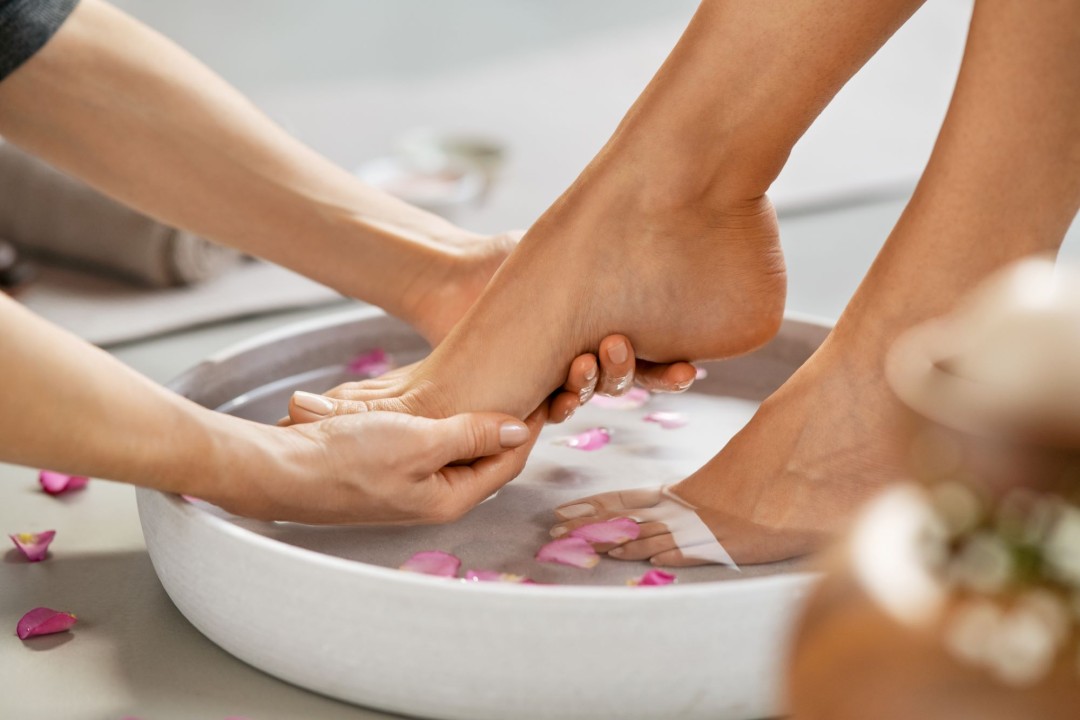
Flash Facts About Pedicure History You Just Didn't Know
Beautifully groomed feet are a hallmark of a person who has it together. Here, we round out your beauty knowledge with cool, flashy pedicure history facts.
Our ancestors dug pedicured feet! Our pedicure history points make this case.
Pedicure history experts say many of our ancient ancestors loved recording their love of the foot treatment on, for example, wall carvings and clay pots. Fast forward to today, and many an indulgent beauty fan has taken a picture of a fabulously finished pedi. It's true — the more things change, the more they stay the same!
The backstory of the beloved pedi is here below!
Historical facts about the pedi:
- The word “pedicure” hails from Latin: “pedis” translates into feet, and “cura” translates into care.
- Pedicures have been with us for more than 5,000 years, appearing across a few highly evolved human civilizations.
- The existence of fingernail polish has been dated as far back as 3,000 BC in certain regions of China. Ming Dynasty royals painted their fingernails in red and black to show off their high social status, notes a manuscript from the time period. It is said that the Egyptian Queen of Beauty herself, Cleopatra, painted her nails in a deep red color. Men from her country, as well as those of ancient Rome, often went into battle with painted nails that matched their lips.
- Ancient Egyptians upheld long nails as a symbol of wisdom, so key and vital for communicating with the gods. The Egyptian nobles of the time colored them in bright colors and kept them long. Slaves and members of the lower classes, however, were made to keep their nails short, but were allowed to paint them with light colors or pastels.
- Ancient Chinese women often chose metallic silver and gold colors — made from beeswax — for their nails.
- In ancient Babylonia, members of the nobility used gold tools to give themselves pedicures.
- In the modern age, product lines designed to take care of feet and legs first appeared during the 1920s. The rising hemline was making feet and legs more visible, which made women feel more self-conscious about these previously covered-up body parts — particularly on the beach!
- In America, the first range of colors meant for women’s nails was invented by Charles Revlon in 1932.
- Hollywood made manicures popular across all states in the 1930s. The then-sheer craze over lacquered nails subsequently fed into the birth and popularity of painted toenails in the 1950s when Revlon launched the first toe nail color ever (an orangey-red color) in its eponymous 1952 Fire & Ice campaign.
- Health Fact: Pedicure cosmetologists are the first lines of defense in detecting nail and foot disorders and disease such as corns, bunions, and fungal infections. Going to regular pedi appointments keeps all foot problems at bay! Of course, our ancestors benefited from this, as well, meaning that the pedicure has continually aided the collective health of society throughout its beloved existence. Pedicures have saved lives!
Pedicure history proves it — applied colors on our nails can round out our look, beautifully, while providing some good R&R. Aren’t you glad to be a fan?
Change your precious pedi routine up — book a home-visiting pedicurist on the MOBILESTYLES App today! Download it here at: www.mobilestyles.com/download.



People have been grooming their nails for almost 4,000 years. Noblemen in southern Babylonia used solid gold equipment to give themselves manicures and pedicures.